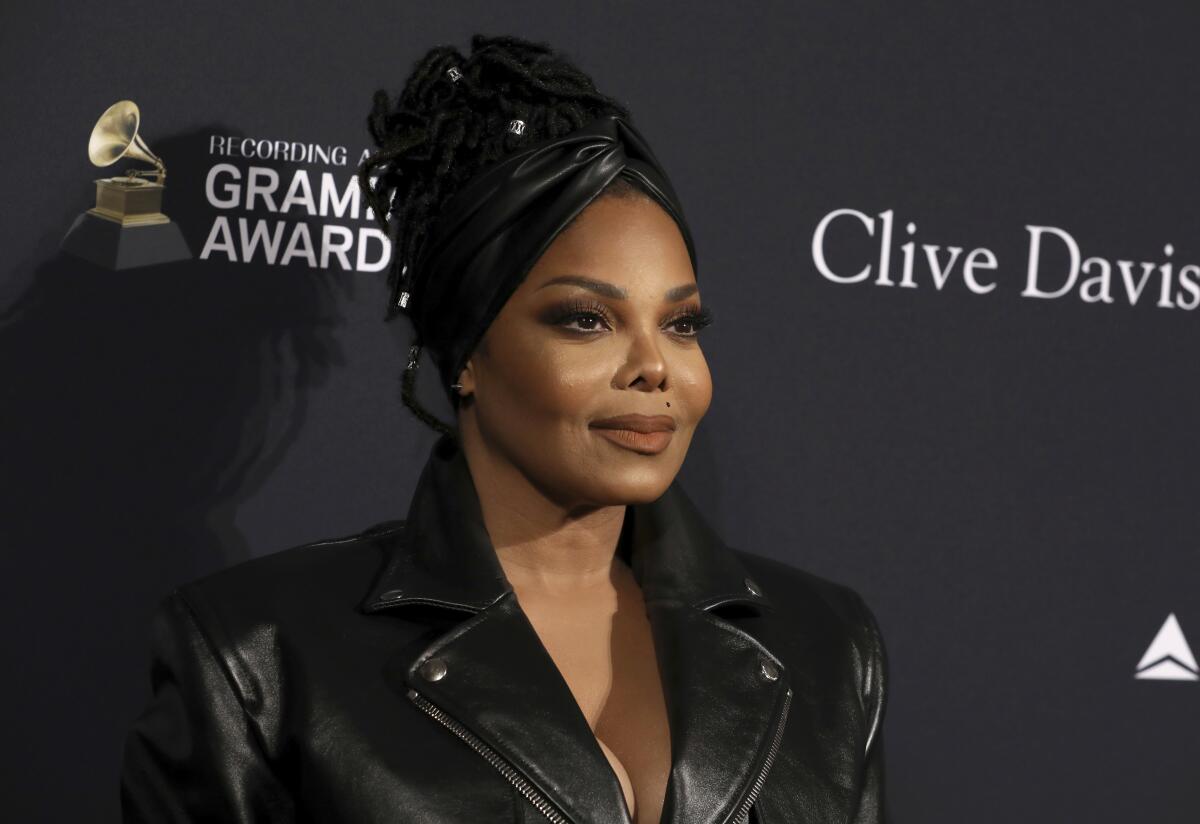Column: Why do we praise Black performers for ‘crossing over’ to white audiences?

Saw a debate on Twitter this week that caught my attention: Madonna or Janet Jackson — who is the real queen of pop?
The conversation was started by Lizzo, who in sharing her list of music royalty gave the coveted title to Jackson, which set off Madonna fans. Billboard magazine, the music industry’s longtime chart tracker, gave the title to Madonna some time ago. Jackson is ranked third, behind Mariah Carey.
Before we forget the original, though, let’s be clear that in 1976, Billboard had already named Diana Ross the female entertainer of the century. She became the Kareem Abdul-Jabbar of music, too often overlooked whenever people debate the “greatest of all time.”
That sort of amnesia is one of the many reasons I dislike debates of this nature to begin with.
But this “Madonna vs. Jackson” conversation drifted toward an interesting topic: crossover appeal.
Janet Jackson’s popularity is noteworthy for crossing racial lines, which highlights the fact that Madonna’s success did not.
That’s not to say Madonna doesn’t have Black fans. Of course she does. I’m one of them.
But despite working with iconic R&B producers such as Babyface, Kanye West, Pharrell Williams, Dallas Austin and Timbaland, Madonna has managed just one Top 10 R&B/hip-hop single, “Like a Virgin,” which peaked at No. 9 back in 1985. The song’s producer, Nile Rodgers, is known for adding some funk to a number of white artists, such as David Bowie (“Let’s Dance”) and Duran Duran (“Notorious”).
Madonna was able to build an iconic career relying heavily on R&B production without the burden of needing to appeal to R&B listeners. She went for as Black a sound as she possibly could without being hindered by the music industry’s racism. Ranking on the R&B charts was unnecessary.
That’s not unique to Madonna. Bowie brilliantly pointed out the same thing in a 1983 interview on MTV in which he called out the network for its lack of music videos featuring Black artists. The interviewer, Mark Goodman, was so comfortable defending the racist practice that he offered this gem: “We have to try and do what we think not only New York and Los Angeles will appreciate but also Poughkeepsie or … some town in the Midwest that would be scared to death by Prince, which we’re playing, or a string of other Black faces.”
That Prince literally was from “some town in the Midwest” was apparently lost on Goodman. What was not lost on anyone in the industry at this time was that white America wanted to hear Black music, without seeing Black faces. That was the lesson of Motown 20 years earlier.
In 1984, Rodgers brought in his R&B band Chic to record “Like a Virgin,” and Madonna became a superstar. Perhaps even the queen of pop. Fueled by R&B.
Her 1990 hit “Justify My Love” epitomized this dynamic. “Justify” relies on a beat from a Public Enemy song — which is sampled from a James Brown song. Over that, Madonna does spoken word like a character from “Love Jones.” Despite its obvious R&B foundation, the song never cracked the R&B Top 40, even as it hit No. 1 on the Billboard Hot 100.
I love me some Madonna. I’ve seen her in concert maybe 10 times. I believe she is one of the most important performing artists in history. But I also know she’s been able to make a lot of R&B hits without the need to have a lot of R&B listeners, while Black musicians like Jackson have had to “cross over” to be seen as culturally legitimate.
Jackson racked up 10 Hot 100 No. 1 songs, while hitting the top of the R&B list 16 times. Sometimes a song was No. 1 on both charts at the same time.
The “crossover” narrative sickens me because it deems the sensibilities of white America as the sole arbiter of American music, which simultaneously dismissing the sensibilities of the people who have created America’s most popular genres of music. From country to rock ’n’ roll to R&B, Black artists have had to not only fight the odds just to make a living, but also fight erasure.
The truth is Janet Jackson didn’t cross over. White America did. Just as white people had when Diana Ross and the Supremes were battling the Beatles for music supremacy.
How silly if we would celebrate Jackson only because she won acclaim in white America. The distinction of the Billboard Hot 100 vs. the R&B Top 10 is antiquated, an exercise in branding and marketing. Neither list captures overall popularity. But when a Black artist claws her way up the Hot 100, that tells us something. She has overcome an industry machine intended to divide the nation and target certain groups.
I don’t care about titles like “queen of pop,” but if we’re going to have these debates, bear in mind what it took to ascend to the throne.
More to Read
A cure for the common opinion
Get thought-provoking perspectives with our weekly newsletter.
You may occasionally receive promotional content from the Los Angeles Times.











